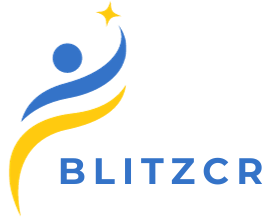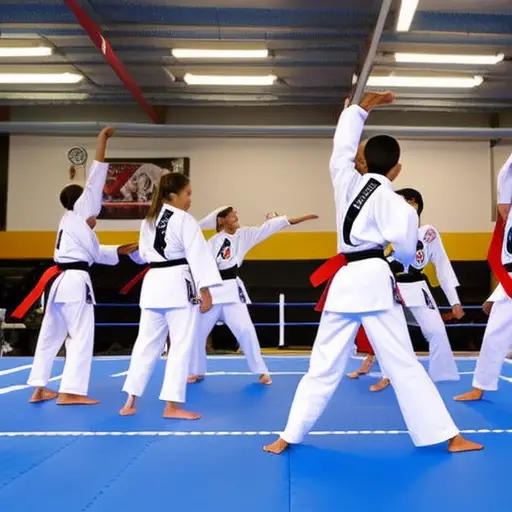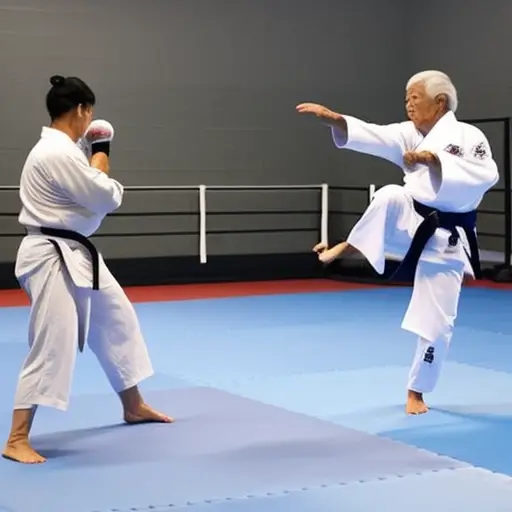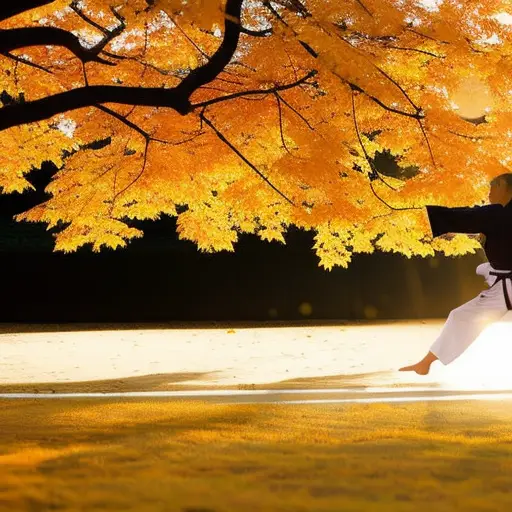Taekwondo as a Tool for Managing Stress Among Adults
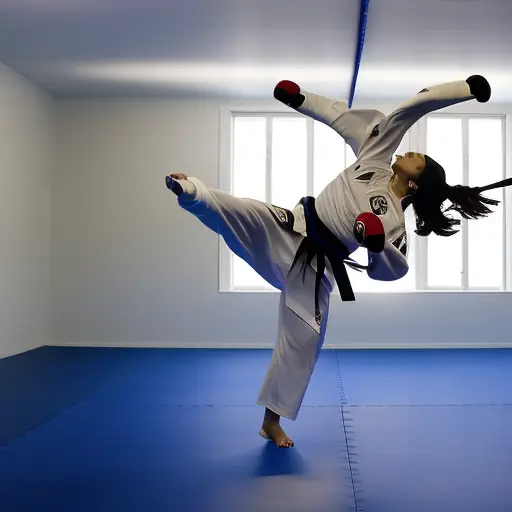
In today’s fast-paced world, stress management has become a crucial aspect of maintaining overall well-being. One effective tool that has gained recognition for its ability to alleviate stress among adults is Taekwondo.
This ancient Korean martial art combines physical exercise, mental focus, and self-discipline, making it an ideal practice for individuals seeking a holistic approach to stress reduction.
By exploring the benefits of Taekwondo in managing stress, this article aims to shed light on how this practice can enhance mental well-being and promote resilience in the face of everyday challenges.
The Benefits of Taekwondo for Stress Reduction
One of the main benefits of practicing Taekwondo is that it can significantly reduce stress levels in adults. Taekwondo is a martial art that combines physical techniques with mental discipline, providing individuals with a holistic approach to stress reduction. Through the practice of Taekwondo, adults can experience a range of benefits that contribute to stress reduction, such as improving focus and enhancing self-confidence.
The practice of Taekwondo requires a high level of focus and concentration. During training, individuals must pay close attention to their movements and techniques, which helps to divert their attention from stressors and worries. This focused mindset allows practitioners to stay in the present moment and let go of negative thoughts and anxieties, providing a temporary escape from daily stressors.
In addition to improving focus, Taekwondo also enhances self-confidence. As individuals progress in their training and achieve higher belt ranks, they gain a sense of accomplishment and self-belief. This boost in self-confidence can help individuals better cope with stress as they develop a stronger sense of resilience and self-assurance.
How Taekwondo Can Improve Mental Well-being
Several key ways in which Taekwondo can enhance mental well-being include promoting emotional resilience, fostering mindfulness, and reducing symptoms of anxiety and depression. Taekwondo is not just a physical activity; it is also a practice that cultivates mental strength and clarity. By engaging in Taekwondo, individuals can improve their focus, boost self-confidence, and experience a sense of empowerment.
Here are three ways in which Taekwondo can positively impact mental well-being:
-
Improving focus: Taekwondo requires concentration and discipline, which can help individuals develop better focus both inside and outside the training center. By practicing precise movements and techniques, participants learn to block out distractions and stay present in the moment, leading to improved cognitive abilities and increased productivity in daily life.
-
Boosting self-confidence: Through Taekwondo training, individuals learn to set and achieve goals, overcome obstacles, and push themselves beyond their perceived limits. This process fosters a sense of accomplishment and self-belief, leading to increased self-confidence and a positive self-image.
-
Elevating mood and reducing stress: Engaging in physical activity releases endorphins, which are known as ‘feel-good’ hormones, leading to an elevated mood and reduced stress levels. Taekwondo also provides a healthy outlet for releasing tension and pent-up emotions, promoting emotional well-being and resilience.
Physical Fitness and Stress Management: The Role of Taekwondo
Through its emphasis on physical fitness and discipline, Taekwondo plays a crucial role in managing stress among adults.
The practice of Taekwondo requires a high level of physical endurance, which not only helps individuals build strength and improve overall fitness but also acts as a powerful outlet for releasing stress. Engaging in regular Taekwondo training sessions allows adults to channel their energy and emotions into physical movements, helping them to release tension and reduce stress levels.
Moreover, Taekwondo provides adults with a sense of empowerment through the learning and application of self-defense techniques. The ability to defend oneself can boost self-confidence and contribute to a greater feeling of security, reducing anxiety and stress-related symptoms. Additionally, the rigorous training and discipline required in Taekwondo promote mental focus and concentration, allowing individuals to redirect their thoughts away from stressors and onto the present moment.
Incorporating Taekwondo into a regular exercise routine can significantly improve physical fitness and overall well-being. By engaging in intense physical activity, adults can release endorphins, which are natural mood enhancers that help combat stress and promote a sense of well-being. The combination of physical exertion, self-defense techniques, and mental discipline make Taekwondo an effective tool for managing stress among adults.
Transitioning into the subsequent section about ‘developing resilience through Taekwondo practice’, it is important to note that the physical and mental challenges faced in Taekwondo training can help individuals build resilience and better cope with stress in their daily lives.
Developing Resilience Through Taekwondo Practice
By incorporating rigorous physical and mental training, Taekwondo practice cultivates resilience among adults in effectively managing stress. Taekwondo fosters discipline and builds confidence, which are crucial in developing resilience. Here are three ways in which Taekwondo helps individuals develop these qualities:
-
Discipline: Taekwondo training requires strict adherence to rules and regulations. Practitioners must follow a structured routine, including punctuality, respecting instructors and peers, and maintaining a focused mindset. This discipline instills a sense of responsibility and self-control, enabling individuals to overcome obstacles and challenges in their daily lives.
-
Building Confidence: Taekwondo practice pushes individuals out of their comfort zones, encouraging them to confront their fears and limitations. Through consistent training and progression, practitioners gain confidence in their physical abilities and mental resilience. The sense of accomplishment and mastery gained from achieving goals in Taekwondo breeds self-assurance, which carries over into other aspects of life.
-
Resilience in the Face of Adversity: Taekwondo training involves facing physical and mental challenges, such as rigorous physical conditioning and sparring competitions. By persevering through these difficulties, individuals develop resilience and learn to adapt to stressors effectively. Taekwondo teaches practitioners to embrace failure as an opportunity for growth and to bounce back stronger from setbacks.
Through the development of discipline and building of confidence, Taekwondo empowers adults to become resilient individuals capable of managing stress and overcoming life’s challenges.
Using Taekwondo Techniques to Find Balance in Life
Achieving a state of balance in life can be facilitated by incorporating Taekwondo techniques into one’s daily routine. Taekwondo is not just a martial art, but also a way of life that emphasizes discipline, focus, and self-control. By practicing Taekwondo, individuals can find inner peace and build self-confidence, which are essential components of a balanced life.
Finding inner peace is a crucial aspect of achieving balance. Through Taekwondo practice, individuals are encouraged to quiet their minds, focus on their breath, and let go of stress and distractions. This mindfulness practice helps individuals to be present in the moment and cultivate a sense of calmness and tranquility. By finding inner peace, individuals can better manage stress and maintain a balanced perspective in the face of life’s challenges.
In addition to finding inner peace, Taekwondo also helps individuals build self-confidence. Through rigorous training and setting and achieving goals, practitioners of Taekwondo develop a strong sense of self-belief and self-worth. The physical and mental challenges of Taekwondo build resilience and strengthen one’s character. This confidence extends beyond the training mat and into daily life, enabling individuals to face challenges with determination and overcome obstacles with resilience.
Incorporating Taekwondo techniques into one’s daily routine can be a powerful tool in finding balance in life. By finding inner peace and building self-confidence, individuals can navigate life’s ups and downs with grace and resilience. Taekwondo provides a holistic approach to achieving balance, both physically and mentally, leading to a more fulfilled and harmonious life.
Frequently Asked Questions
What Are Some Alternative Methods to Manage Stress Besides Taekwondo?
There are several alternative methods for managing stress besides taekwondo. These include mindfulness meditation, yoga, exercise, deep breathing exercises, journaling, listening to music, and seeking social support. It is important to find a method that works best for each individual.
Can Taekwondo Be Effective in Reducing Stress for Individuals With Physical Limitations?
Taekwondo can be effective in reducing stress for individuals with physical limitations through the use of modifications and adaptations. By tailoring the practice to accommodate specific needs, individuals can still benefit from the stress-relieving aspects of Taekwondo.
How Long Does It Typically Take for Someone to Experience the Stress-Reducing Benefits of Taekwondo?
The timeframe for experiencing the stress-reducing benefits of Taekwondo varies depending on factors such as individual commitment, frequency of practice, and personal circumstances. However, research suggests that regular participation can lead to noticeable effectiveness in managing stress over time.
Is There a Specific Age Group That Benefits the Most From Practicing Taekwondo for Stress Management?
When considering the specific age group that benefits the most from practicing taekwondo for stress management, it is important to assess individual needs and capabilities. Different age groups may find varying levels of benefit based on their physical and mental capacities.
Are There Any Potential Risks or Side Effects Associated With Using Taekwondo as a Stress Management Tool?
Potential risks and side effects associated with using taekwondo as a stress management tool should not be overlooked. It is essential to consider factors such as physical injuries, muscle soreness, and mental strain that may arise from intense training and competition.
Conclusion
In conclusion, Taekwondo provides numerous benefits for managing stress among adults. Its physical and mental aspects contribute to improved well-being and resilience.
Through the practice of Taekwondo, individuals can develop balance in life, both in a literal sense through the physical techniques and in a metaphorical sense by finding harmony and equilibrium within themselves.
Just as a skilled Taekwondo practitioner strikes a perfect balance, so too can individuals find inner peace and serenity through the practice of this martial art.
